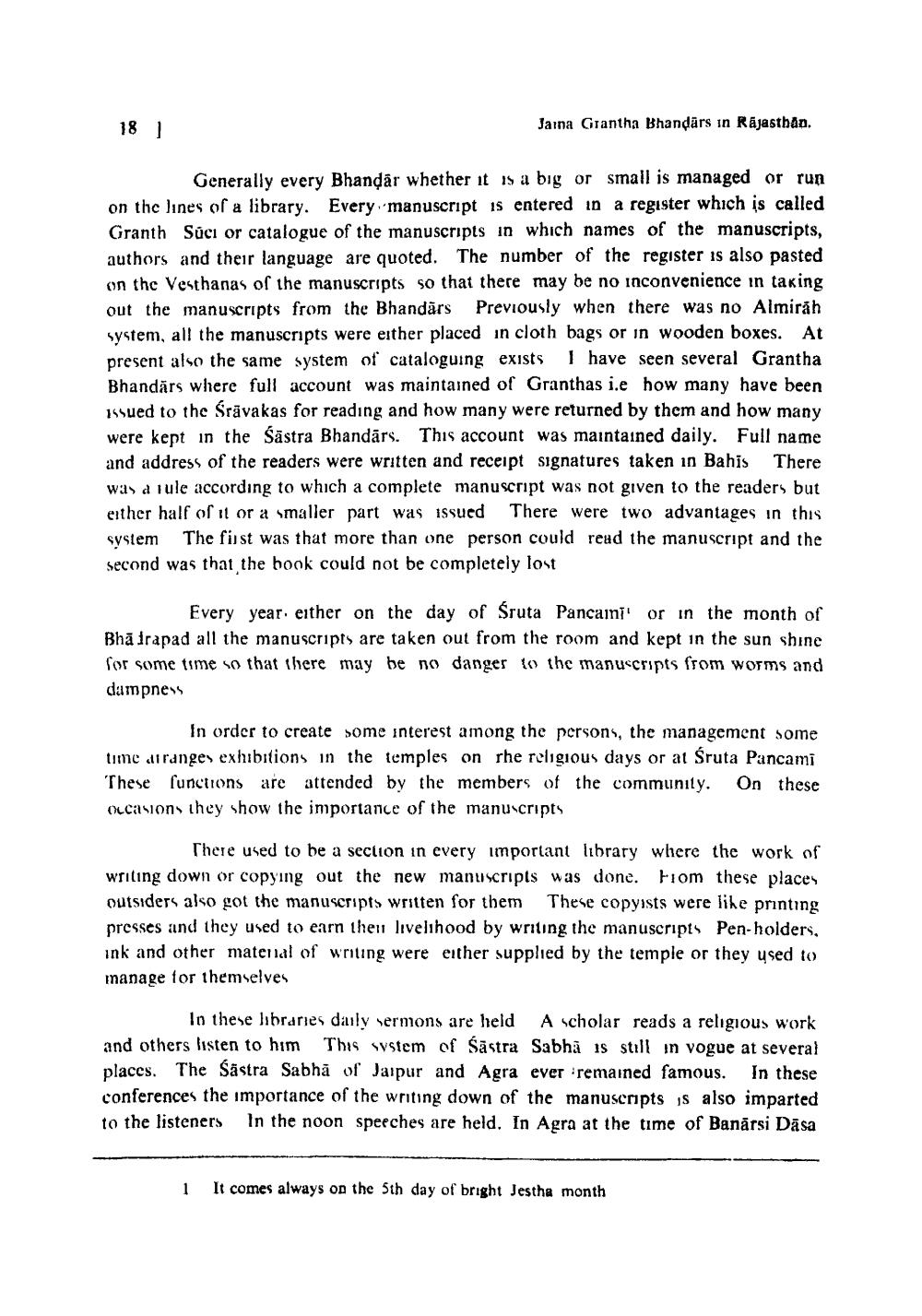________________
18
Jaina Grantha Bhandārs in Rājasthan.
Generally every Bhandar whether it is a big or small is managed or run on the lines of a library. Every manuscript is entered in a register which is called Granth Súci or catalogue of the manuscripts in which names of the manuscripts, authors and their language are quoted. The number of the register is also pasted on the Vesthanas of the manuscripts so that there may be no inconvenience in taking out the manuscripts from the Bhandārs Previously when there was no Almirah system, all the manuscripts were either placed in cloth bags or in wooden boxes. At present also the same system of cataloguing exists I have seen several Grantha Bhandārs where full account was maintained of Granthas i.e how many have been Issued to the Srāvakas for reading and how many were returned by them and how many were kept in the Sāstra Bhandārs. This account was maintained daily. Full name and address of the readers were written and receipt signatures taken in Bahis There was d rule according to which a complete manuscript was not given to the readers but either half of it or a smaller part was issued There were two advantages in this system The first was that more than one person could read the manuscript and the second was that the book could not be completely lost
Every year. either on the day of Sruta Pancains' or in the month of Bhā irapad all the manuscripts are taken out from the room and kept in the sun shine for some time so that there may be no danger to the manuscripts from worms and dampness
In order to create some interest among the persons, the management some time diranges exhibitions in the temples on rhe religious days or at Śruta Pancami These functions are attended by the members of the community. On these Occasions they show the importance of the manuscripts
There used to be a section in every important library where the work of writing down or copying out the new manuscripts was done. From these places outsiders also got the manuscripts written for them These copyists were like printing presses and they used to earn then livelihood by writing the manuscripts Pen-holders, ink and other matenal of writing were either supplied by the temple or they used to manage for themselves
In these libraries daily sermons are held A scholar reads a religious work and others listen to him This system of Šāstra Sabha is still in vogue at several places. The Sastra Sabhā of Jaipur and Agra ever remained famous. In these conferences the importance of the writing down of the manuscripts is also imparted to the listeners in the noon speeches are held. In Agra at the time of Banārsi Dāsa
1
It comes always on the 5th day of bright Jestha month




